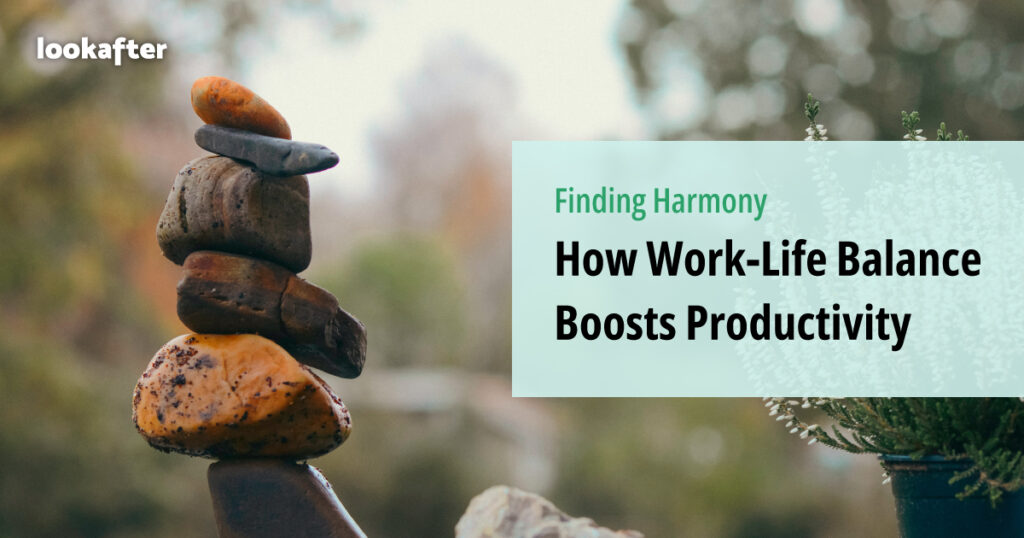Home > Empowering Tips > Finding Harmony: How Work-Life Balance Boosts Productivity

In today’s fast-paced and demanding work environments, achieving a healthy work-life balance has become more challenging than ever. As we strive to meet professional expectations and excel in our careers, we often find ourselves sacrificing personal time and neglecting crucial aspects of our well-being. However, the pursuit of work-life balance is not just a personal endeavour; it has a profound impact on workplace productivity and overall job satisfaction. In this article, we will explore how finding harmony between work and personal life can significantly boost productivity and lead to happier, more fulfilled employees.
The Toll of Imbalance
When work takes precedence over everything else in life, it can lead to severe consequences for employees and organizations alike. Prolonged periods of overwork and neglecting personal needs can result in burnout, a state of emotional, physical, and mental exhaustion. Burned-out employees are less engaged, less creative, and less productive in their roles. This drop in productivity not only affects individuals but also impacts the overall team dynamics and company performance.
The Power of Work-Life Balance
- Reduced Stress, Increased Focus: A well-balanced employee is better equipped to handle workplace stress. When they have time to recharge and engage in activities they enjoy outside of work, they return to the office with increased focus and a refreshed mindset. This heightened focus translates into higher productivity and better decision-making.
- Enhanced Creativity and Innovation: Personal time and hobbies allow employees to disconnect from work-related pressures. Engaging in creative pursuits and exploring interests can fuel innovative thinking and problem-solving skills. Employees who have a healthy work-life balance are often more creative and contribute fresh perspectives to their teams.
- Improved Time Management: Striving for work-life balance encourages individuals to manage their time more efficiently. When employees know they have limited time for work tasks, they are more likely to prioritize effectively and complete assignments promptly.
- Higher Job Satisfaction and Retention: Organizations that promote work-life balance are seen as more attractive employers. Satisfied employees are more likely to stay with a company long-term, reducing turnover costs and maintaining a stable, experienced workforce. When employees feel supported in achieving work-life harmony, they develop a stronger sense of loyalty to their employers.
- Healthier and Happier Employees: Work-life balance positively impacts both mental and physical health. Employees who can maintain a balance between their personal and professional lives are less prone to burnout, anxiety, and stress-related illnesses. Healthier employees take fewer sick days and are more engaged and productive during their working hours.
Building a Work-Life Balance Culture
To foster work-life balance and boost productivity in the workplace, organizations can take several steps:
- Promote Flexibility: Offer flexible work hours or remote work options when feasible, allowing employees to better manage their time and personal commitments.
- Lead by Example: Managers and leaders should set the precedent by practicing work-life balance themselves. Encourage them to take regular breaks and avoid sending work-related messages during employees’ off-hours.
- Establish Clear Policies: Implement policies that respect employees’ personal time, such as limiting after-hours communication and avoiding last-minute requests.
- Encourage Open Communication: Create a culture where employees feel comfortable discussing work-life balance concerns with their supervisors. Encourage dialogue and be receptive to accommodating individual needs when possible.
- Provide Wellness Programs: Offer wellness initiatives that promote physical and mental well-being, such as exercise classes, meditation sessions, or counselling services.
Conclusion
Work-life balance is not just a luxury; it is a fundamental factor that impacts productivity, job satisfaction, and overall well-being. Employees who find harmony between their work and personal lives are happier, healthier, and more engaged in their jobs. Embracing a work-life balance culture is not only a win for employees but also a strategic investment that pays off in increased productivity and a thriving, successful organization. Let us take steps towards fostering a healthier balance, one that benefits individuals and workplaces alike, leading us all to a more fulfilling and productive future.